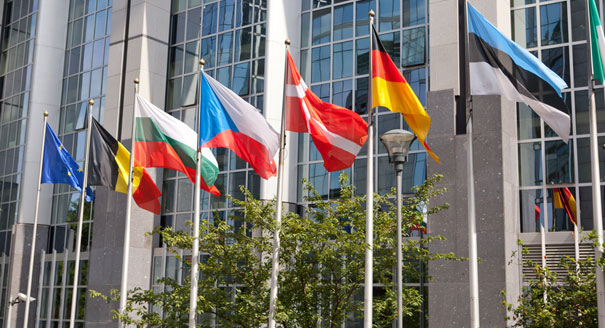Forget about an ever-closer union. Big and small EU member states want powers returned to national governments. That is the conclusion of a survey published on June 7 by the Pew Research Center. It’s an important and timely poll, coming just weeks before the British decide on June 23 if they will stay in or leave the EU.
If Britain were to leave, the most passionate EU supporters in other countries could grasp that opportunity to push for more integration. After all, many would argue, Britain’s staunch opposition to an ever-closer union would no longer be an impediment to integration.
Don’t be so sure. Pew shows that the EU’s big countries—and its founding members—want the transfer of more powers from Brussels to the member states. In the Netherlands, the figure in favor of such a move is 44 percent, in Germany 43 percent, and in France and Italy 39 percent.
Not surprisingly, given austerity measures on top of the refugee crisis, over two-thirds of Greeks (just ahead of Brits) have had enough of Brussels calling the shots. Of the ten countries polled, those with the lowest enthusiasm for repatriating powers are Spain (35 percent) and Poland (38 percent).
Bruce Stokes, director of global economic attitudes at Pew, argued that the findings showed that “Euroskepticism is on the rise across Europe.” It doesn’t mean that those polled want to leave the EU. But the survey shows that the EU, for the moment, has reached its limit when it comes to the integration project. What is more, those polled no longer believe the EU can deliver. The inference is that the member states can do things better.
There’s no doubt that the eurozone crisis, followed by the refugee crisis, has dealt a heavy blow to the confidence of the EU’s institutions to deal with such challenges. Two-thirds of French respondents and 92 percent of Greeks disapproved of the EU’s handling of economic issues, compared with 38 percent of Germans and 33 percent of Poles—Poland being one of the few EU countries to escape recession during the global financial crisis and the eurozone crisis. As for the EU’s management of the refugee crisis, the average disapproval rate is 75 percent.
Of course, it’s always easy to blame the EU for almost everything. However, looking back at previous surveys carried out over the years, there is a noticeable trend across the EU: the renationalization of policy, from foreign, security, and defense issues to economic and migration questions.
Germany—a country once so committed to integration and the ceding of powers to the European Commission, the EU’s executive—has over the past dozen years shifted influence back to national governments. In fact, with few exceptions, such as German Finance Minister Wolfgang Schäuble, integration is not a relevant issue in the public discourse.
Yet if the member states continue to sideline the commission, it is hard to see the EU as an influential and credible union that can deal with the eurozone and refugee crises, which are far from over. The big unasked question is whether the member states, eager to defend their powers and interests, can or want to make Europe more integrated.
There are, by the way, two optimistic findings in this survey. On average, 63 percent of those polled believe it would be “a bad thing” for Britain to leave the EU. And second, in the majority of countries surveyed, compared with those aged over fifty, it is people aged between eighteen and thirty-four who more clearly favor the EU. Some glimmer of hope for Europe’s future.










